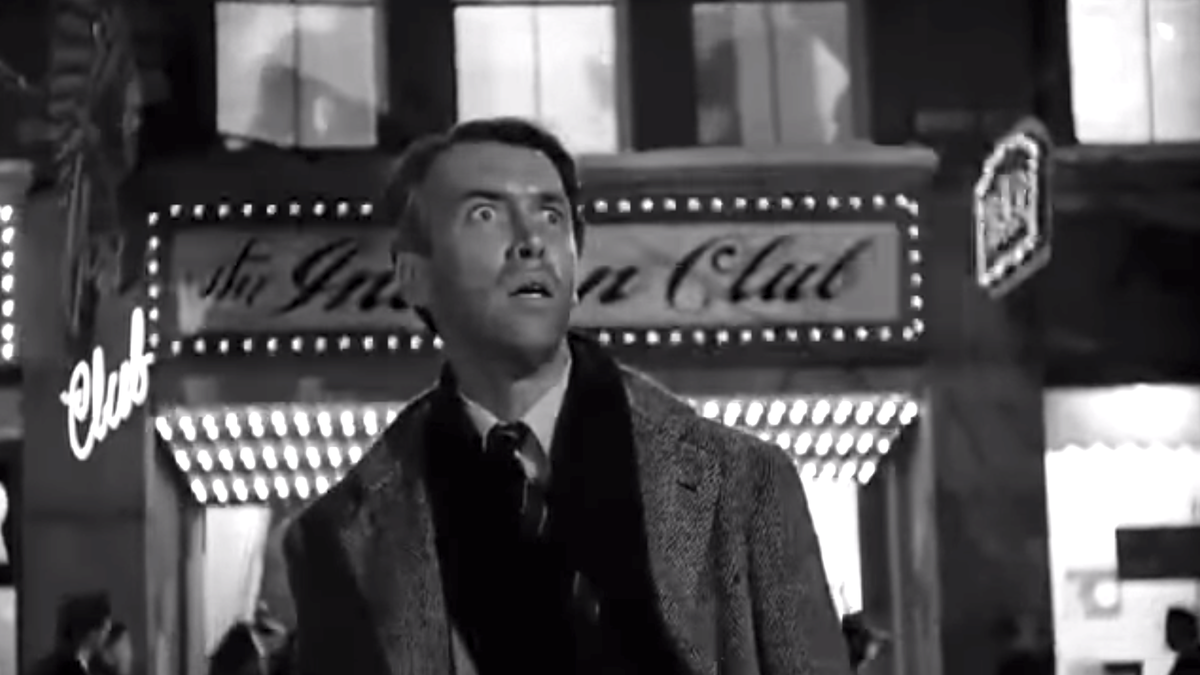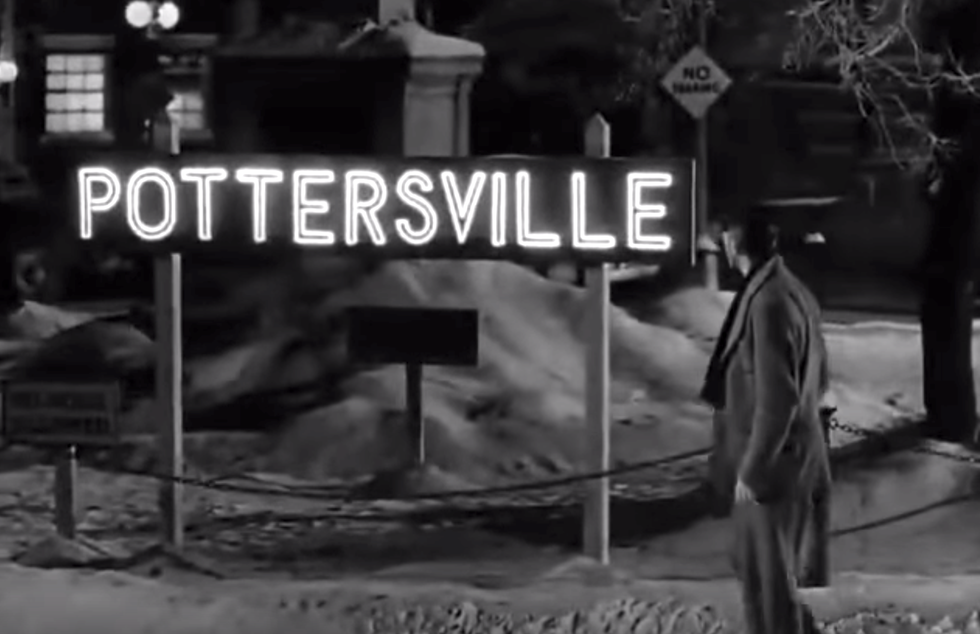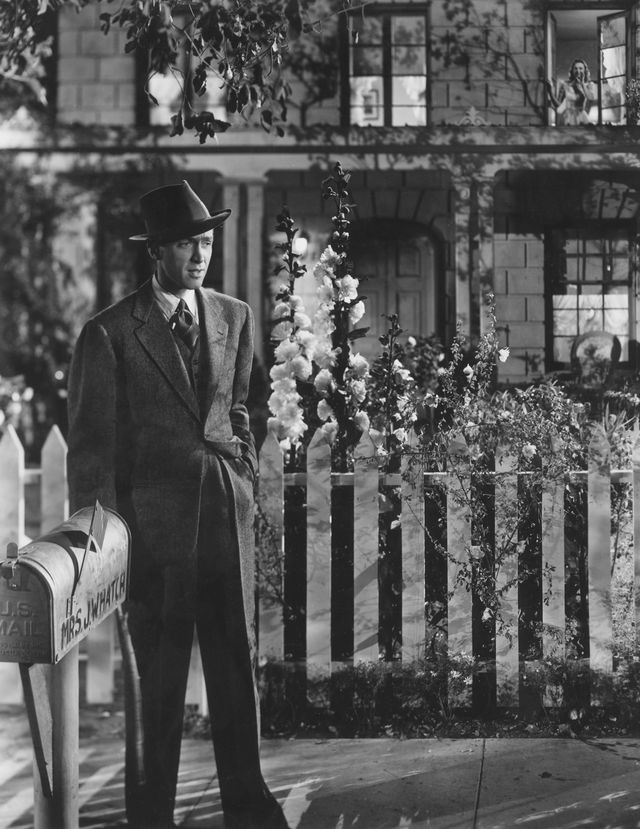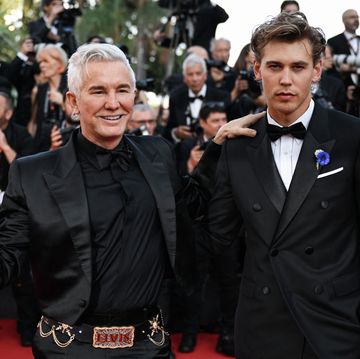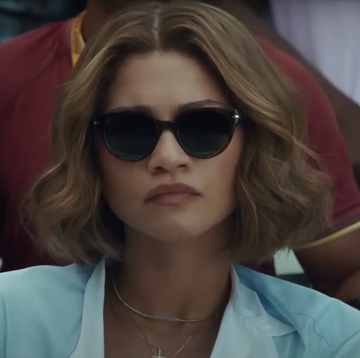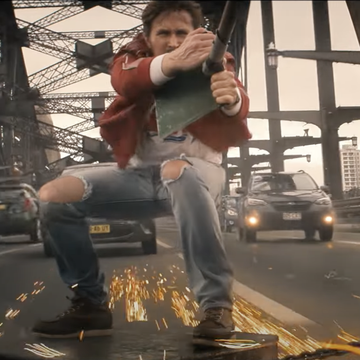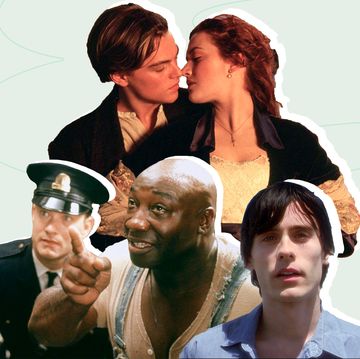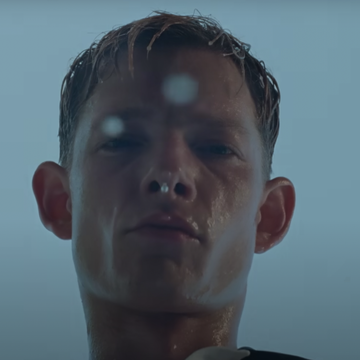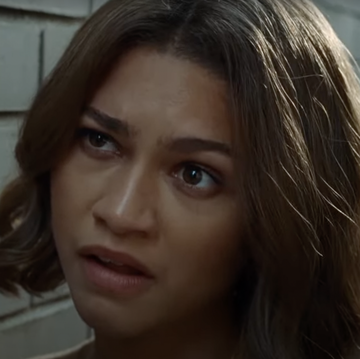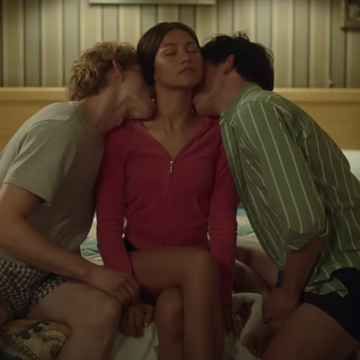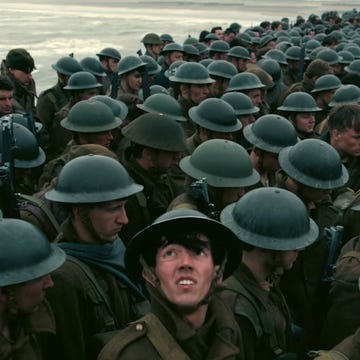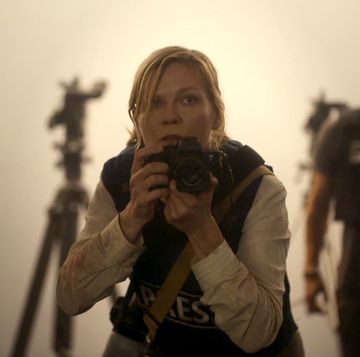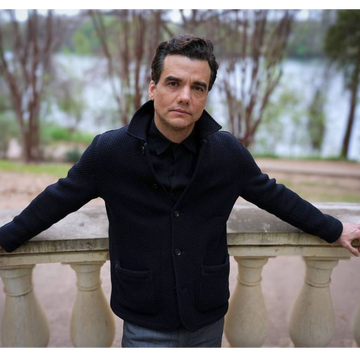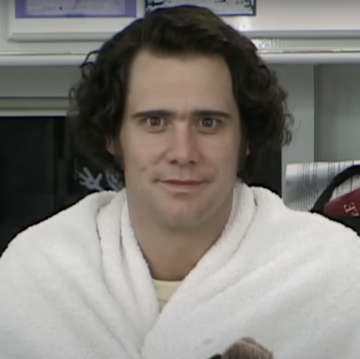When George Bailey contemplates suicide and recedes into the Twilight Zone in It's A Wonderful Life, the old-fashioned American values of Bedford Falls go dark. The picturesque storefronts on the town's main road turn into a drag of "jitterbug" bars and billiards halls, there's flashing lights everywhere, and we even see advertisements for strip clubs. Without George Bailey, Bedford Falls becomes "Pottersville," a hive of sin and villainy, where sex workers roam the streets freely and the film's orchestral soundtrack is replaced with jazz music. Can you imagine? Jazz music! Not in my Christian street!
But over 60 years after the film was released back in 1946, Pottersville doesn't look quite so bad anymore. Mr. Potter, the immoral real estate mogul who stakes claim to the place, is obviously is a very shitty old coot, so it's sad to see him in power, but you just can’t deny the irony of the situation. Pottersville looks fun as hell! At least, more fun than sleepy Bedford Falls, where the coolest thing you can do is throw rocks at a condemned house or sled into an icy pond and suffer lifelong hearing loss.
Admit it, Clarence–Bedford Falls is better off without George Bailey.
When Jimmy Stewart's All-American loan banker first drifts through the multiverse and lands in the alternate dimension of Pottersville, everybody’s really mean to him. But he kind of deserves it. Bailey, drunk off his ass, accosts a passerby, and insists the town is called "Bedford Falls." The guy responds, "Don't you think I know where I live?" He's not in the wrong. Bailey is acting like an asshole!
And then he goes to his old buddy Mr. Martini's bar, to find that it has been replaced with "Nick's." But it's fun now! There's live music! A chummy bartender with a Trans-Atlantic accent! Bailey is short with the bartender, Clarence tries to order a "Flaming rum punch," then mentions his spiel about angels getting wings when bells are heard, and the two of them end up face-first in the snow outside. "And stay out!" The bouncers yell. Inside, the bartender repeatedly dings the cash register and makes the joke, "Look at me, I'm giving out wings!" You gotta admit, it's not a bad burn.
We don't get to see too much of Pottersville, but in the brief glimpses director Frank Capra shows us, it looks like a place I'd like to go. First, we see a bar called Blue Moon that resembles the kind of trendy spot you might find on Franklin Avenue in Brooklyn (pretentious bartenders, decently-priced craft beer, maybe a foosball table). Then there's a billiards club next to a billboard for an upcoming boxing match–a good Friday night to me! After that, we see the "Midnight Club" which advertises "Dancing." Kind of hypocritical for Bailey, a Charleston-dancing champion, to be so wary of a nightclub. And imagine, if he dances there, he wouldn't end up submerged in a high school gymnasium pool, fully clothed.
The thing that really sends Bailey reeling is the image of his Building and Loan replaced by a "Jitterbug" club, which I imagine is 1940s burlesque spot. Bailey's modest family business (which really fucked over the entire town of Bedford Falls in the other dimension of the film) has transformed into a glamorous, sexually-liberated fun-zone. Violet, the film's most sexually-liberated character, apparently performs there. Good for Violet. She deserved better than these squares.
Bailey ends up hopping in Ernie's taxi cab. Bert and Ernie are two of Bailey's closest friends in the original dimension (apparently it's just a coincidence that the Sesame Street characters have these same names), but here they don't treat him too kindly. They're not unkind to him either, though. If you jumped into a cab and started yelling about knowing the driver's wife, I don't think you could expect much civility in return either. What's always amused me about Bert and Ernie in this film is that, even in the alternate Pottersville timeline, the two of them are still best friends. I like to think that their friendship is the glue that holds the Wonderful Life multiverse together.
Of course what Capra is trying to show here, albeit through a conservative 1940s lens, is that humans need each other. Pottersville is obviously a Trump-like casino world that's probably overrun with crime and corruption. The picture of it in the film looks pretty fun to enjoy for one night. But we understand that Bailey's humanity is necessary for keeping Bedford Falls from slipping into the grips of the greedy Mr. Potter.
The message of the film, however, still feels a bit murky. When Bailey finds that Mary, his wife, is not married in the world of Pottersville, it's sad, sure. But who knows! Maybe she likes being a librarian! Maybe Violet is having a great time as a Burlesque dancer in this reality too! Bailey discovers that his brother Harry is dead in Pottersville since he wasn't there to save him, but how many people, really, are we responsible for, in this life? Capra wants to make the point that George Bailey should feel guilty for not being around. But the people of Bedford Falls need to have some agency in their own stories. And maybe Bailey needs to step back and let Pottersville happen a little bit. His raggedy old Christian mindset makes Bedford Falls way too stuffy anyway.
